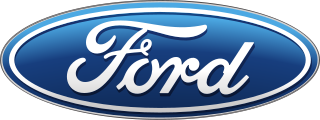
Biotechnia Ellinikon Trikyklon, or BET, was a small vehicle manufacturer founded in Athens by Petros Konstantinou. It was one of several manufacturers - the first appearing in the early 1940s - that converted BMW or other motorcycles into light utility three-wheelers. In 1965 it entirely designed and built a small five-seat passenger car with a BMW 125cc motorcycle engine. Although the type was certified, only one was built due to problems in availability of parts for further production. Following this design, three-wheeled truck models were developed and produced. A second passenger car model was designed and introduced in 1973, known as model 500, with a Fiat 500cc engine. With metal body, seating up to five passengers and featuring very good road handling, it was a rather advanced three-wheeler for its time. It was certified for production and 15 were built, of which one survives to this date in excellent condition. There were even talks with a South African company involving plans for exports or even transfer of production to that country, but they were never realized. The company ceased production in 1975.

STYL KAR was named after its founder, the engineer Stylianos Karakatsanis. Its entire history is representative of a large number of Greek companies who were engaged in the construction of simple utility vehicles.

Alta was a Greek manufacturer of light and heavier three-wheeler trucks, motorcycles and passenger cars. Production of motorcycles and three-wheeler trucks with Sachs 50cc engines started in its first factory in Athens in 1962. The 50S motorcycle model was known for its reliability. In 1967 it designed and developed model A700, a heavier three-wheel truck with 2-cylinder BMW 35 hp engine and a payload of 800 kg. The truck, featuring a pleasant design and high reliability became one of the most successful vehicles of its kind in Greece. In 1968 Alta introduced a three-wheel passenger car, model A200. Powered by a Heinkel 200cc engine, the car was based on the German Fuldamobil, but with Alta's own body design. The company moved production to a new, larger factory in Elefsis where it operated until 1978.

Attica was a brand name of vehicles produced by Bioplastic S.A., a company created in Moschato, Athens by Georgios Dimitriadis, a figure in Greek automotive history.

DIM Motor Company, a Greek automobile maker, was created by Georgios Dimitriadis as a successor to his earlier company, Bioplastic S.A., which had produced the Attica automobile. The DIM represented one more effort by Mr. Dimitriadis to design and develop a modern car entirely by his company's own means. A 400cc, air-cooled, 2-cylinder, 30-hp engine was also developed in-house to power the vehicle, but due to delays in the engine development, the car was introduced with a 600cc engine and other mechanical parts of the Fiat 126 model. A 650cc Fiat engine was also used, in an improved version. The car was finally introduced at the Geneva Motor Show in 1977, and for this reason received more publicity than most Greek vehicles, appearing in many international publications. All development work had been made in a factory intended for its production in Acharnes, while the company was advertised in the Greek press; plans were also made for more versions, including a sports coupe. However, the costs involved and the car's poor prospects in the Greek market resulted in termination of production after only about ten had been produced. The whole project was abandoned in 1982, having been Georgios Dimitriadis' last venture in the automotive industry.
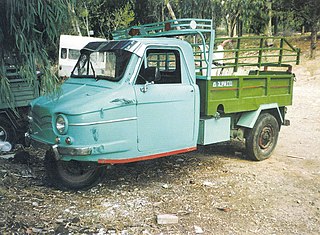
Pan-Car was a Greek producer of automobiles and light trucks, operating between 1968 and 1994. As was often the case in Greece, its name comes from that of its founder, Panayiotis Caravisopoulos. In 1968 it was one of many Greek companies that produced three-wheeler trucks, using Volkswagen engines. In 1977 it introduced beach buggy models built on Volkswagen chassis, which were produced for several years. In 1992 it introduced a jeep-type automobile, also with Volkswagen mechanicals. The model faced a problem common to such ventures in Greece, i.e., receiving type certification for production. That, and financial problems forced the company to go out of business in 1994.
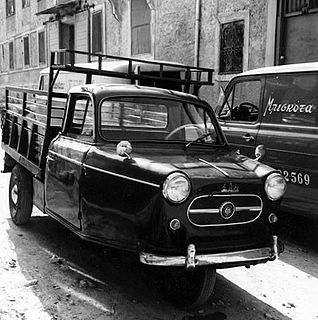
The name SAM stands for Stephanos A. Mbaltas, the founder of this Greek company, one of several that produced three-wheeler trucks in that country, in business between 1966 and 1974. Its first models used 1200cc Volkswagen air-cooled engines, while Ford 1300cc engines powered later models. The chassis developed by SAM was very robust and some of its trucks were surviving 30 years after the company went out of business.

Malkotsis is the trade name for Technica S. Malkotsis A.E., which has historically been the most important Greek engine manufacturer, surpassing several engine manufacturers that flourished in Greece in the 1920s and (mostly) 1930s, like Dimadis-Kanakis in Volos, Peteinaris in Kalamata, Sideris, BIO, and others in Athens, etc. Located in Piraeus, before World War II Malkotsis produced various types of industrial machinery. After the war it produced industrial machinery for several Greek companies, but it progressively focused almost entirely on diesel engines, soon becoming the largest company in its field. Malkotsis engines found use in a variety of industrial applications, while its boat engine models became legendary for their reliability. A series of electric motors was produced as well. Its EM Diesel series included engines specifically designed for powering of vehicles and was employed in Malkotsis's own farm tractor models introduced in 1959. The tractors were produced for only a few years, due to lack of funding and other problems related to a complete lack of state support. The company faced financial problems later, due to competition from cheaper imports, and was acquired in 1991 by Drakos-Polemis A.E., a pump manufacturing company which used all Malkotsis infrastructure for its production purposes.

AutoDiana was a Greek truck manufacturer based in Thessaloniki, in operation between 1975 and 1984. Its main product was the 'Unicar' model, a rather heavy-looking 4x4 multi-purpose truck. This robust vehicle had a payload of 1500 kg and used Mercedes-Benz Diesel engine and Dodge axles. Its fate, along with similar Greek multi-purpose trucks like the Petropoulos Unitrak, the Agricola, the Motoemil Autofarma, the Balkania Autotractor, the Namco Agricar and others, was sealed when a change of Greek law in 1984 modified tax treatment for such 'farm' vehicles. Production was terminated the same year ending a "career" of decent sales among customers in the Greek countryside.
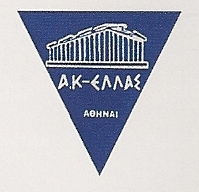
AK Hellas was a Greek manufacturer of light trucks and other metal products. It designed and produced two basic types of vehicles - all three-wheelers with 50cc engines, taking advantage of a favorable classification as "motorbikes" according to Greek law. One group of models it produced since 1965 were light trucks with "motorcycle" structure, a type of vehicle also produced in Greece by MEBEA, Mego, Alta, Saracakis, Pitsos, Markal, Naxos and others. The other group of models were "proper" micro-trucks, with "automobile" structure of steering, controls etc. It was in this category that AK Hellas became the biggest truck manufacturer in Greece, leaving behind MEBEA, Delta, Minicar, Zamba and other smaller Greek manufacturers. The company's T200 model, using a Sachs 50cc 4.8 hp engine and with a payload of 150 kg was produced between 1968 and 1975 with three different cab designs and in several versions. According to Dimitrios N. Aggelopoulos, several thousand units were produced, while other branches created by the same entrepreneur, were involved in production of pleasure boats, biological cleaning units, telephone booths, phone switchboards, generating sets, helmets, storage tanks, prefab container houses, wind turbine blades, irrigation systems, etc.

Scavas is the name of sports cars designed by Greek engineer Vassilios Scavas that were never industrially produced.
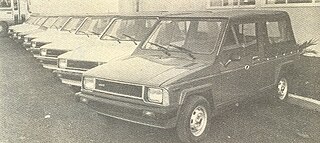
Automeccanica was a Greek automobile producing company. Founded in 1979, it was one of the companies that produced the "passenger-utility" type of vehicle popular in Greece at the time for tax categorization reasons. Its creators were former executives of Autokinitoviomihania Ellados a company founded in 1975 to also produce vehicles of this type – it assembled Italian Fissore models based on Fiat products, as well as other Fiat models and variants. Automeccanica followed a different path, building the Zebra model, a passenger-utility car based on the Daihatsu Charade, as well as assembling the Charade itself. In 1985, when the law favoring the Zebra-type vehicles changed, Automeccanica stopped its production and started licence production of the Soviet Lada Niva model, while it developed its own cabrio-version of the car. In 1988 it acquired its former "father" company, Autokinitoviomihania Ellados and the latter's factory in Thiva. Automeccanica went out of the car-construction business in 1995.
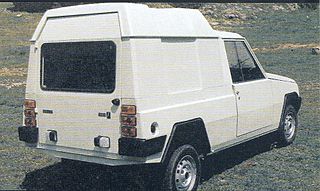
MAVA Company was the Greek importer of Renault automobiles. In 1979, it decided to enter the car-production business introducing a passenger-utility car, a type then very popular in Greece for tax cetagorization reasons. MAVA assigned the creation of the car to Georgios Michael, a Greek designer credited with the design of Neorion Chicago, as well as that of several other Greek vehicles. Michael and his team completed the development and prototype construction in record-time and the car, named Farma, was introduced the same year. MAVA had insisted that the car should be presented as a "Renault model" and thus the prototype was tested and approved by the French company. The Farma, accordingly bearing the Renault logo, was produced in a variety of versions, including "passenger" and "van" types. It had a 4-cylinder 845 cc 34 hp (25 kW) engine and could reach a top speed of about 110 km/h (68 mph). A total of 4500 were built, including the "pure jeep-type" Σ model introduced in 1983, and some minor face-lifts. The attractive car had also received a modest publicity in the European press. By 1985, the Greek law had changed affecting the market for this type of vehicles, thus making their production unprofitable. Michael and his team then worked on a new model; the much more advanced new Farma Change was introduced in 1985. By that time, though, MAVA had scrapped the whole project and only one car, the prototype of the new model, was built.
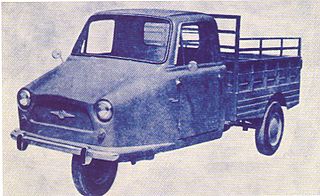
Motoemil was a Greek truck manufacturer based in Thessaloniki. It was named after Emilios Antoniades who started his business, together with his brother Konstantinos, by constructing crude-made trucks assembled from motorcycle and automobile parts. By the mid-1960s, like other similar Greek manufacturers, they were already developing and building complete "automobile" three-wheeler trucks. Motoemil was one of the first of its kind in Northern Greece and soon became the largest in that region, its products sold throughout the country. The first models used 1200cc Volkswagen air-cooled engines. A completely redesigned, more modern-looking model was introduced in 1970, using a German Ford engine.

C.AR was a Greek automotive company, founded in 1970. Originally it was called ARCO, both names being formed from the name of its founder, Constantinos Argyriadis, an engineer and architect. With its headquarters in Thessaloniki and a well-equipped factory in Kilkis it concentrated on design and development of automobiles and related technologies, including composite materials, novel suspension and brake designs, electric vehicles, etc. None of its vehicles, though, entered production and thus this company represents an odd case of personal vision and persistence with catastrophic financial results.

TEMAX is today the leading Greek manufacturer of fire-fighting vehicles, while under its previous name, Tangalakis, it has been one of the most historic bus manufacturers in that country.

Bouhagier Patras or Buhayer Patras is considered to be the longest-lived vehicle body manufacturer in Greece. It was founded in 1890 and dissolved in 2004. The name Bouhagier was the corrupted version of the name of a Maltese family who had settled in Greece. The company founded in Patras by Tzamaria Bouhagier and developed by his sons, was one of the most respected builders of horse-drawn carriages.
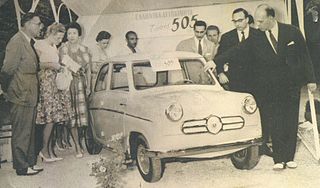
Dimitriadis model 505 was a Greek microcar developed in 1958 by G. Dimitriadis, founder of the Bioplastic boat and automobile manufacturer. This car represented his first effort in automobile production, and was presented in a number of exhibitions in Greece. According to Mr. Dimitriadis, its production was eventually considered non-profitable compared to that of three-wheelers. Thus, he switched to the licence production of the German Fuldamobil three-wheeler.
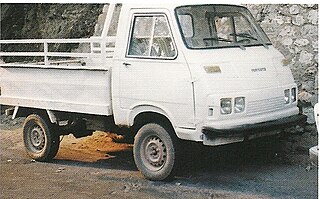
Record A.E.B.E. was the name of a Greek company producing agricultural machinery and vehicles, founded in Heraklion, Crete in 1957 and dissolved in 1999.

Biomot was a small manufacturer of three-wheeled trucks and other metal products, based in Patras, Greece. Its trucks, produced since 1967, originally used rear-mounted VW air-cooled engines, as well as other VW parts. By 1975 the market for such vehicles was vanishing in Greece, as they were gradually being replaced by four-wheeled imported types, and a new “modernized” front-engined model introduced by Biomot failed to save the company.



